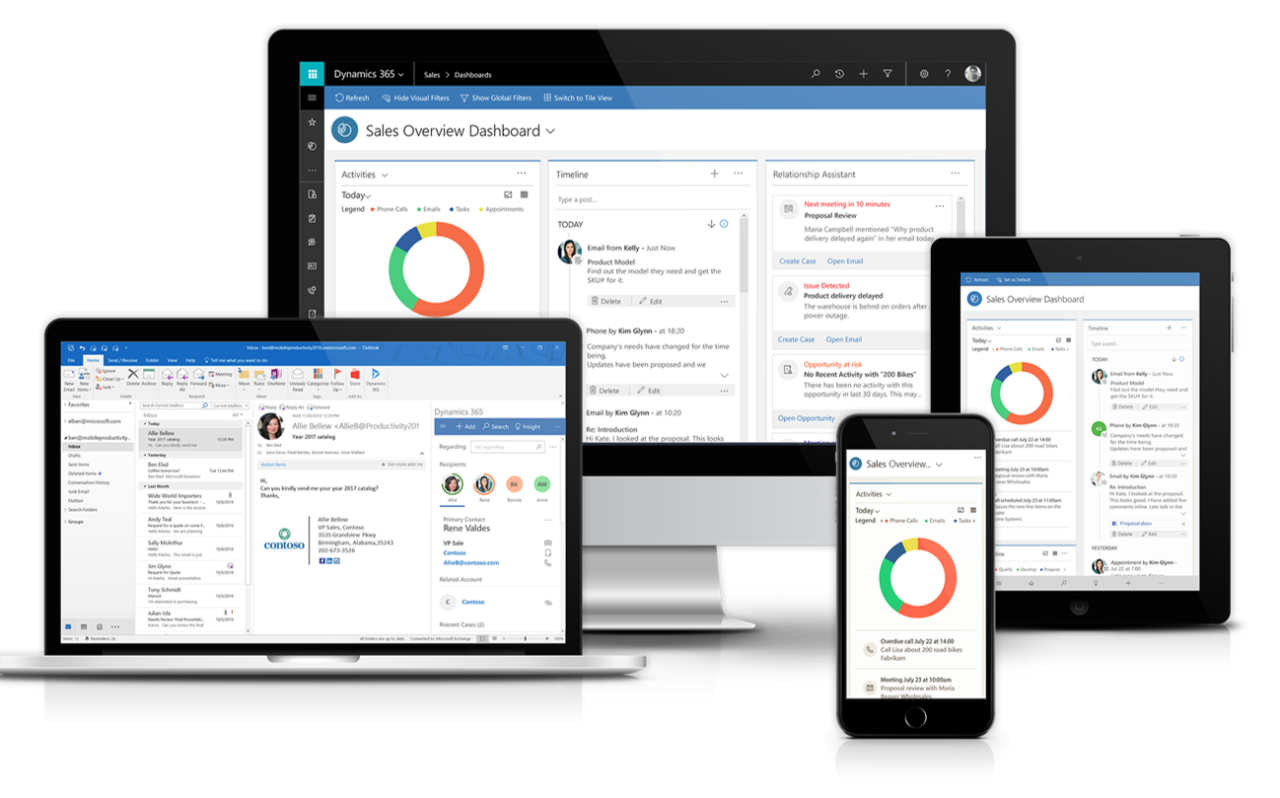As a business owner, leadership team member, or IT director at a telecommunications provider, you’re always looking for ways to grow and serve your customers more effectively. Excel spreadsheets or old, expensive-to-maintain server-based systems just won’t cut it anymore.
The need for a modern solution has been identified. What’s next? There are a host of software platforms and partners available to choose from. What makes Dynamic Consultants Group stand out is its history of working with companies in the telecom sector – companies just like yours. There are many hurdles to jump through in the current climate, and one of them shouldn’t be a partner without experience. Dynamic Consultants Groups will effectively manage your move to the cloud from start to finish, working alongside you and your team to develop and deliver a tailored solution.
Customer retention and intimacy are particularly important in the telecommunications industry. As a telecommunications provider, you are aware that your customers have options to choose from. How can you stand out from the rest? In 2020, your customers expect a high level of service. They expect issues to be resolved quickly, and customer service representatives to be knowledgeable. Let’s take a look at how Dynamics 365 can help with achieving these goals.
Dynamics 365 is a full-featured solution

At the core, Dynamics 365 Customer Engagement is a customer relationship management (CRM) system. It is a database of records that includes people and other businesses that are the core of everything you do. At the base level, this includes categorizations such as accounts, contacts, leads, and opportunities. As a cloud-based service, this can be accessed anywhere, at any time, on any desktop or mobile device. With Dynamics 365 Customer Engagement as the core, here are some of the exciting possibilities for the telecommunications industry.
Gather information about your customers
- Maintain a database of names, phone numbers, addresses, payment status, and more. This information can be self-updated by your customers via a portal (More on that later).
Track communications
- Dynamics 365 is a central place to manage incoming and outgoing communications with your customers. With it, you can send emails, schedule appointments, track phone conversations, and see a history of interactions.
- Outage Awareness – Microsoft offers additional add-on functionality that will work with your system to track the sentiment of incoming communications, as well as public posts on social sites like Twitter. These features enable you to see problems in their infant stages and handle them before they become too widespread.
Launch a customer portal
- A portal provides your customers with the ability to login to make payments, see past billing history, submit support tickets, and view articles in your knowledge base. Typical issues, such as resetting a router or questions about roaming charges, can all be put into this database, reducing the number of tickets in your support desk queue.
Service Management
- Support ticket routing
o Route service tickets to the representatives with the most experience in a particular area
o Properly inform service representatives of service level agreements (SLAs) that may differ between customers and organizations
o With Field Service, schedule resources, if necessary, to visit customers on-site and resolve issues
Data Analytics
From a management perspective, Dynamics 365 Customer Engagement gives you a window into every aspect of sales and customer service. It helps answer questions such as “What is subscriber growth for the quarter?” and “What is our retention rate for existing subscribers?”
Through the use of email surveys, you can gauge customer satisfaction directly, compiling this information into actionable insights.
For the service department, you can ask, “How many tickets did we have this quarter?” and “Is the number of tickets going up or down?” This helps you judge the success of new initiatives.
What’s next?

We’ve mentioned these items to drive the conversation as to how Dynamics 365 for Customer Engagement can benefit your business. Chances are, things began to surface in your mind as you read through these scenarios. We love identifying and addressing pain points that can be a barrier to future growth.
In explaining some of these features, we’ve only scratched the surface as to possibilities with Dynamics 365 and the Microsoft Power Platform. In addition to Customer Engagement, the Dynamics platform includes Dynamics 365 Field Service, Dynamics 365 for Finance, and Business Central. Business Central is a full-featured enterprise relationship management (ERP) system that can handle inventory, orders, and warehouse management.
The Power Platform is comprised of Power Automate, Power Apps, and Power BI to deliver automation, applications, and data visualizations to your team. If you’re interested in learning more information about Dynamics 365 and Dynamic Consultants Group, schedule a meeting with us today.



